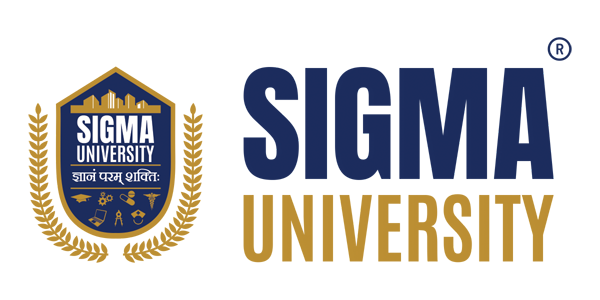Best BCA Colleges for Cyber‑Security & App Development
A Bachelor of Computer Applications (BCA) is no longer a generic tech degree. In 2025, the best BCA colleges in India offer focused tracks in Cyber Security and App Development, mapping directly to market demand. Cyber incidents are rising across industries, while every business, from banking to healthcare, is using mobile apps. If you’re shortlisting top BCA colleges or comparing BCA in Cyber Security versus BCA in App Development, this guide breaks down industry demand, skills, curriculum, admissions, fees, placements, and how to choose the right institute. Why Choose BCA in Cyber-Security or App Development? Cybersecurity sits at the core of digital trust. From safeguarding payment systems and healthcare records to securing critical infrastructure, employers now expect entry-level analysts to know threat modeling, SOC workflows, endpoint hardening, and cloud security basics. App Development, meanwhile, powers customer experiences on Android and iOS; developers who can ship secure, performant apps with polished UI/UX, API integrations, and analytics are in short supply. A BCA in Cyber Security or BCA in App Development gives you a structured path into these growth areas, often with industry certifications and hands-on labs built into the program. Many top BCA colleges pair these tracks with internships and capstone projects, so your portfolio is work-ready on graduation. Industry Demand & Future Scope Across sectors, cyber talent gaps are widening, creating steady job security and strong salary potential for graduates who can read logs, triage incidents, write detection rules, and build secure-by-design systems. Cyber roles increasingly intersect with AI for anomaly detection and with cloud-native security. On the app side, the explosion of fintech, health tech, logistics, and D2C brands keeps mobile engineers perpetually in demand. Cross-platform frameworks (Flutter, React Native) and Kotlin-first Android stacks have matured, while backend skills (Node/Java/Python) and DevOps familiarity amplify employability. The net effect: BCA graduates with these specializations can target start-ups, MNCs, product firms, and IT services with clear growth ladders. Skills You Gain in These Specializations A strong BCA Cyber Security track builds foundations in networks, operating systems, scripting, and security architecture before moving into ethical hacking, cryptography, SIEM/SOC operations, incident response, forensics, and cloud/IAM. You also pick up secure coding and compliance basics (OWASP, PCI-DSS). A BCA in App Development emphasizes Java/Kotlin, Swift, or cross-platform (Flutter), UI/UX fundamentals, REST/GraphQL APIs, database management, app performance, testing/CI-CD, and store deployment workflows. Together, these skills align with roles like Security Analyst, SOC Analyst, Ethical Hacker and Mobile App Developer, Front-end Engineer, and UI/UX Designer. Top BCA Colleges in India Offering Cyber Security & App Development Below are examples of institutions, public, private, and university-backed, offering relevant specializations or strong tracks closely aligned with cybersecurity and app development. Always verify the current syllabus, fees, and eligibility on official portals before applying. Top BCA Colleges for Cyber Security Sigma University, Vadodara (Gujarat) – Sigma offers a BCA program with university recognition and a technology-forward ecosystem. Its program documents list standard BCA duration (3 years) and eligibility (10+2 recognized board). Sigma’s broader tech schools are UGC/AICTE recognized, with Gujarat state affiliations noted in program literature, making it a strong regional choice with practical exposure. JAIN (Deemed-to-be University), Kochi Campus – Offers BCA (Cyber Security) integrated with EC-Council modules, valuable for industry-recognized skills and labs. This integration signals a certification-aware curriculum designed for SOC and blue-team readiness. Amity University, Mohali – Provides BCA with Cyber Security as a specialization focus; Amity’s large network and industry tie-ups help with projects and internships. Rayat Bahra University (RBU), Mohali – Runs a BCA with Specialization in Information Security in collaboration with HCL, offering an employability-aligned curriculum and exposure to enterprise environments. Top BCA Colleges for App Development Poornima University (Jaipur) – Offers BCA (Mobile Applications) with an explicit Android/iOS skill path, giving clarity to students seeking an app-first career. The official page details the specialization and structure. Lovely Professional University (Punjab) – LPU’s BCA suite includes modern stacks (e.g., AI-ML track). While the specific “Mobile App Development” tag varies by year, its curriculum usually covers Android, full-stack basics, and industry workshops worth exploring if you want broader app + data exposure. VIT (Vellore Institute of Technology) – A respected tech brand with UG computing programs and industry-backed pedagogy. Though specializations change, VIT’s UG computing degrees remain strong feeders into app dev roles thanks to projects, labs, and corporate connections. Note: Institute offerings evolve; cross-check the latest BCA curriculum with Cyber Security or App Development mentions during application season. Curriculum Overview for Cyber Security & App Development in BCA Key Subjects in BCA Cyber Security Track Expect computer networks, operating systems, programming (Python/Java), databases, then Network Security, Web Security, Cryptography, Ethical Hacking, Digital Forensics, Cloud Security, SIEM & SOC Operations, Vulnerability Assessment & Penetration Testing, and Risk/Compliance. Many programs encourage EC-Council/CompTIA electives to validate skills. (For certification-integrated sample, see JAIN Kochi’s EC-Council-aligned path.) Key Subjects in BCA App Development Track Common modules include Java/Kotlin, Flutter (Dart) or React Native (JS), UI/UX Principles, RESTful APIs, SQLite/Room/Firebase, App Performance & Testing, CI/CD, and Play Store/App Store Deployment. Programs like Poornima’s “Mobile Applications” make these modules explicit. Admission Process and Eligibility Criteria Most best BCA colleges in India ask for 10+2 from a recognized board. Mathematics or Computer Science is preferred, but not always mandatory; cut-offs vary by college. You’ll typically apply online, upload documents, and, in select institutes, sit for an aptitude test or interview. As an example, Sigma University’s BCA program literature specifies a 33-year duration and 10+2 eligibility within recognized norms (UGC/AICTE presence and state approvals). Fee Structures for BCA in Cyber Security & App Development Fees range widely based on brand, labs, location, and industry tie-ups. Government colleges tend to be more affordable; private universities charge more for smaller cohorts, specialized labs, and certification bundles. For instance, Poornima’s BCA page indicates transparent semester-wise tuition, reflecting an accessible fee model for a focused app specialization. Use such official fee pages as benchmarks while you compare institutions. Placement Opportunities & Career Prospects BCA graduates from Cyber Security tracks typically start as Security Analysts,
Best BCA Colleges for Cyber‑Security & App Development Read More »



